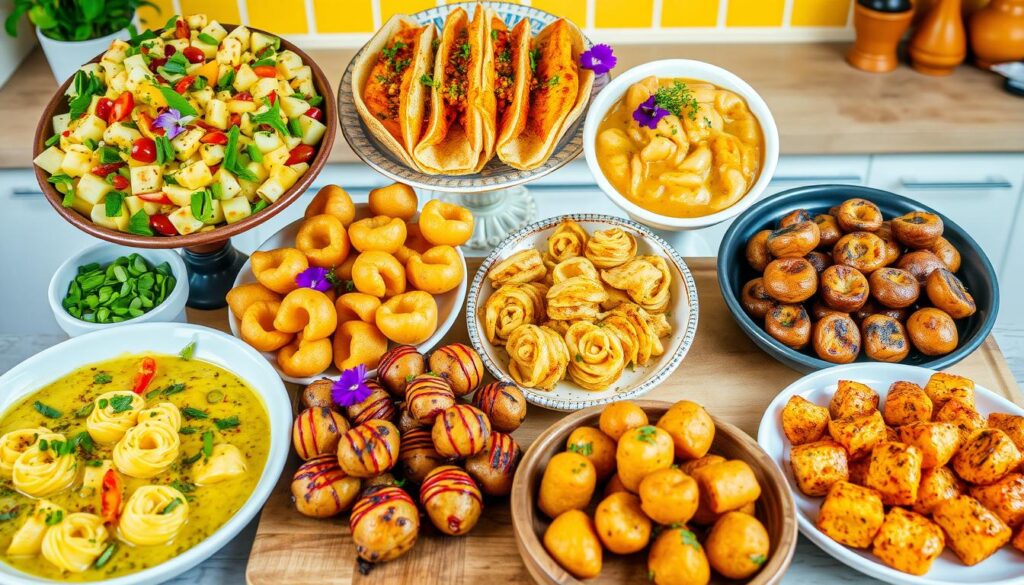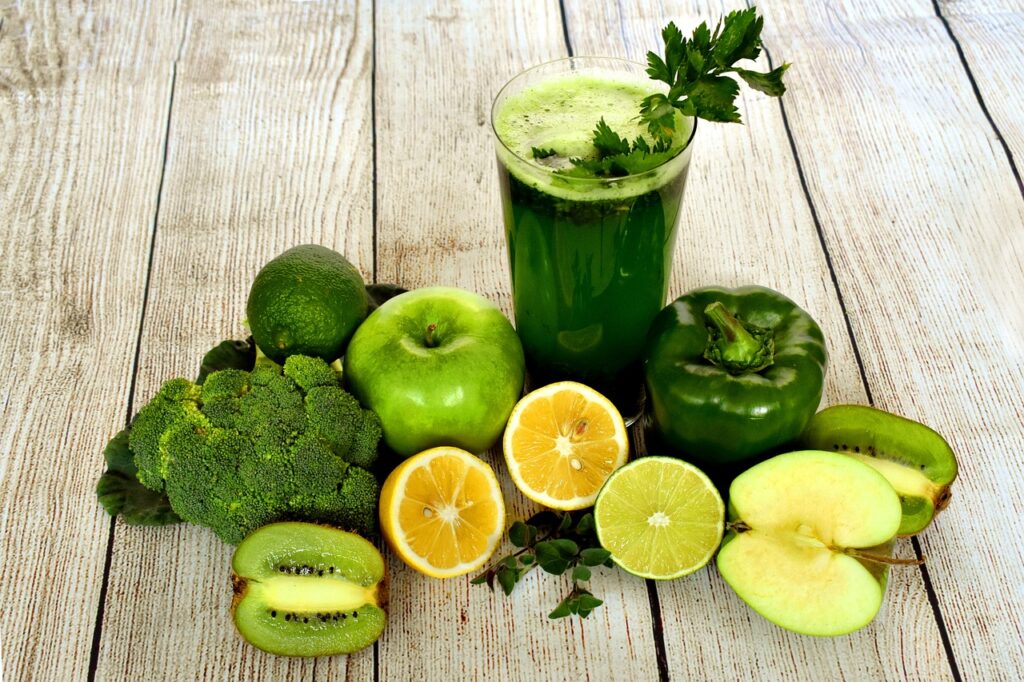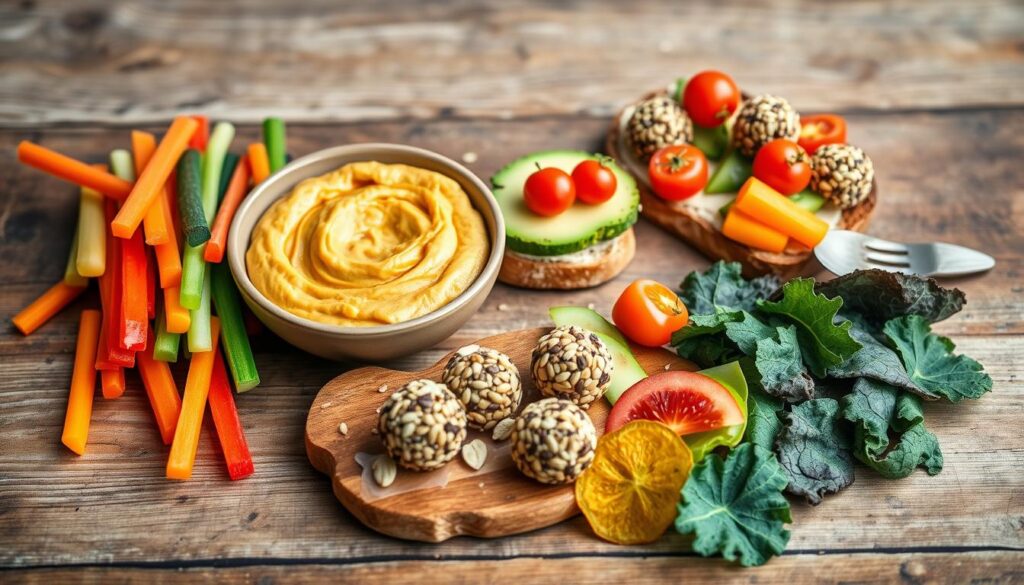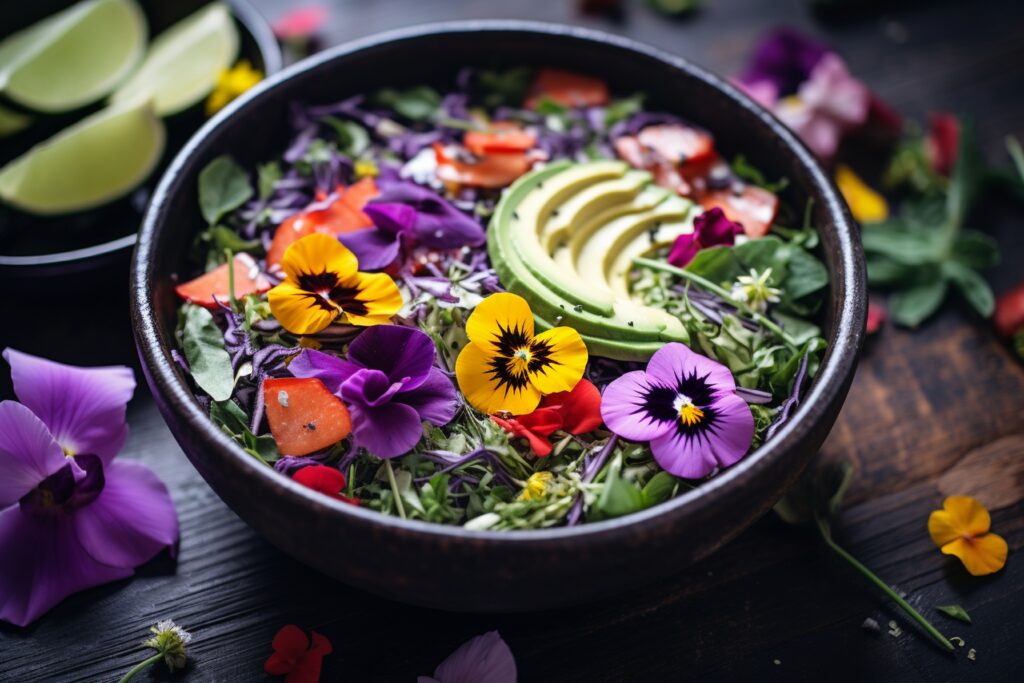Switching to a vegan diet can bring many health perks. But, it’s key to keep your nutrition balanced. As a vegan nutrition guide, I suggest eating a variety of plant-based foods. This helps support your health.
When you’re vegan, watch your intake of important nutrients. Make sure you get enough calcium, vitamin D, vitamin B12, iron, and omega-3 fatty acids. Try to keep sodium, added sugars, and saturated fats in check.
Eating a wide range of fruits, vegetables, legumes, whole grains, nuts, and seeds is crucial. This variety helps you meet your nutritional needs.
Working with a registered dietitian is super helpful when starting a vegan diet. They can help you create a diet plan that fits your needs. With the right plan, a vegan diet can lead to great health and happiness.
Understanding the Benefits and Risks of a Vegan Diet
A vegan diet, which excludes all animal products, has become more popular. Many people choose it for its health benefits. These include reducing heart disease risk, lowering cholesterol, and aiding in weight loss. Plant-based diets may also lower the risk of diseases like diabetes and hypertension.
But, a vegan diet has risks if not balanced right. Vegans might miss out on important nutrients like protein, vitamin B12, calcium, and omega-3 fatty acids. Low vitamin B12 can cause serious health issues. Vegans also need more iron and zinc, which are hard to get from plants.
To have a healthy vegan diet, focus on nutrient-rich foods. Include fruits, vegetables, whole grains, and plant-based proteins like soy. Avoid relying too much on processed vegan foods. Sometimes, supplements are needed to get all the necessary vitamins and minerals.
While a vegan diet can be very healthy, it’s key to get advice from a healthcare professional or dietitian. They can help make sure your diet is balanced and meets your nutritional needs. Knowing both the benefits and risks of a vegan diet helps you make better choices for your health.
Essential Nutrients for Vegans
A vegan diet is great for health, but you must get all the nutrients your body needs. You might need to focus more on nutrients found in animal products. These include calcium, vitamin D, vitamin B12, and omega-3 fatty acids.
Calcium is key for strong bones and teeth. You can find it in leafy greens, fortified plant milks, and tofu. Adults need 1,000 mg of calcium daily, and those over 50 need 1,200 mg. Vegans might not get enough from food alone, so adding calcium-rich foods or supplements is important.
Vitamin D helps your body use calcium and is vital for bones. While sunlight can make vitamin D, many people, including vegans, don’t get enough. Fortified plant milks and cereals, along with supplements, can help meet your needs. Choose vegan-friendly vitamin D supplements made from lichen or algae.
Vitamin B12 is crucial for blood and nerve health. Since it’s mainly in animal products, vegans rely on fortified foods or supplements. Aim for 2.4 mcg daily, more during pregnancy and breastfeeding. Nutritional yeast, plant milks, and cereals are good vegan sources of B12.
Omega-3 fatty acids, especially EPA and DHA, are good for your heart and brain. While flaxseed, chia seeds, and walnuts have ALA, converting it to EPA and DHA is hard. Vegans might have less EPA and DHA than meat-eaters. Algae-based supplements can give you EPA and DHA directly, with a suggested 200-300 mg daily.
Don’t forget about iron, zinc, and iodine. Eating a variety of whole plant foods and fortified products can help. Talking to a registered dietitian can also offer personalized advice to ensure you’re getting all the nutrients you need on a vegan diet.
Strategies for Maintaining a Balanced Vegan Diet
Keeping a balanced vegan diet needs careful planning. You must ensure you get all the nutrients your body needs. Focus on eating a variety of protein sources like legumes, soy products, nuts, and seeds. Peas, lentils, and beans are great for vegans.
Don’t forget to eat whole grains like quinoa and buckwheat. They give you protein and other important nutrients. Whole grains are key for a healthy vegan diet, offering fiber, vitamins, and minerals.
It’s also important to think about supplement recommendations for hard-to-get nutrients. Vitamin B12, found mainly in animal foods, is crucial for vegans. They can get it from fortified foods or supplements. Vegans might also need to supplement with vitamin D, omega-3 fatty acids, and iodine.
Getting help from a registered dietitian is very helpful. They can create a plan tailored to your needs. They’ll help you find the best foods and supplements. By eating whole, plant-based foods and following expert advice, you can live a healthy vegan life.
Meal Planning and Preparation for Vegans
As a vegan, I know how key meal planning and prep are. I focus on mixing foods like legumes, whole grains, and veggies. This way, I get all the nutrients my body needs. I also make sure to include protein sources like nuts, seeds, and soy products.
I use food combination strategies to boost nutrient absorption. For instance, eating iron-rich foods with vitamin C helps iron absorption. Legumes with whole grains give me a complete protein. I also track my nutrients with apps or a dietitian to stay on track.
Batch cooking and meal prep are game-changers for me. They let me have healthy vegan meals anytime. I spend a bit of time each week cooking big batches of grains, legumes, and veggies. This saves time and keeps me from grabbing unhealthy food when I’m in a rush.
When eating out or traveling, a quick search for vegan options is essential. I check menus and reviews before going and always tell servers about my diet. With some planning, eating well as a vegan is easy, no matter where I am.
Adapting a Vegan Diet for Different Life Stages and Health Conditions
A well-planned vegan diet is healthy for everyone, but it’s key to think about different life stages and health needs. Pregnant and breastfeeding women need to make sure they get enough vitamin B12, iron, and omega-3 fatty acids. These are vital for the baby’s growth. The American Dietetic Association says vegan diets are good for all ages, but getting professional advice is crucial.
As we get older, our bodies need different nutrients. Vegans over 50 should focus on getting enough calcium, vitamin D, and vitamin B12. The Oxford-EPIC study showed that vegans who eat over 525 mg of calcium a day don’t have more fractures than meat-eaters. Foods like broccoli, kale, and cabbage are great for calcium and vitamin K, which help keep bones strong. Talking to a registered dietitian can help older vegans meet their nutritional needs.
People with health issues like diabetes or gut problems should also get help from a healthcare professional. Vegan diets can help prevent diseases like heart disease and diabetes. But, it’s important to adjust the diet to fit individual health needs. For example, those with diabetes might need to watch their carb intake, while those with gut issues might benefit from more fiber-rich foods like fruits and beans.
Adapting a vegan diet for different life stages and health conditions needs careful planning and expert advice. By working with a healthcare provider or registered dietitian, vegans can make sure they’re getting the right nutrients. This way, a vegan diet can be a healthy choice for people of all ages and health conditions.






